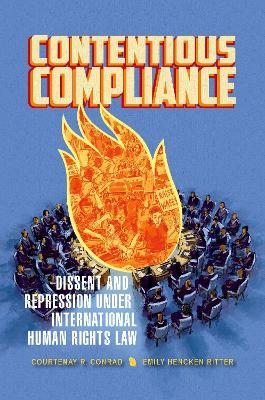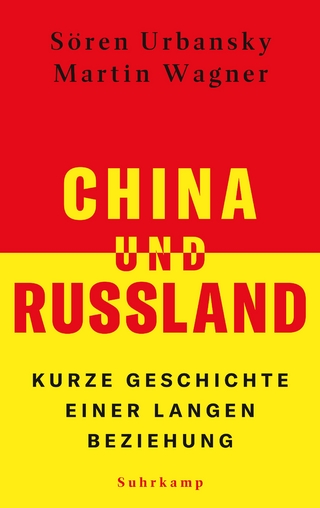
Contentious Compliance
Oxford University Press Inc (Verlag)
978-0-19-091098-3 (ISBN)
Courtenay R. Conrad is Associate Professor of political science at the University of California, Merced. Her research and teaching focus primarily on political violence and human rights, particularly on how repressive agents make decisions in the face of domestic and international institutional constraints. Dr. Conrad's research has been funded by the National Science Foundation and the Institute on Global Conflict and Cooperation; published in top journals including the American Political Science Review, the American Journal of Political Science, and the Journal of Politics; and referenced in media outlets including The Washington Post and Discovery News. Emily Hencken Ritter is Associate Professor of political science at Vanderbilt University. Her research centers on the effects of legal institutions on the strategic relationship between government repression and dissent activities. She has received best article awards from the Journal of Conflict Resolution and the Midwest Political Science Association (MPSA), as well as the Early Career Award from the MPSA Women's Caucus. She has published her research in the top journals of political science, including the American Political Science Review, the Journal of Politics, and the Journal of Peace Research.
Dedication
Acknowledgments
Professional acknowledgments
Personal acknowledgments: Courtenay
Personal acknowledgments: Emily
I Introduction
1 Do human rights treaties protect rights?
II A theory of domestic conflict & international treaty constraint
2 A model of conflict and constraint
3 Empirical implications of treaty effects on conflict
III An empirical investigation of conflict & treaty constraint
4 Using data to determine the effect of treaties on repression & dissent
5 Substantive empirical results: Government repression
6 Substantive empirical results: Mobilized dissent
IV Conclusion
7 Conclusion: Human rights treaties (sometimes) protect rights
V Appendices
Appendix to Chapter 3: Proofs of formal theory
Appendix to Chapter 6: Empirical results for government repression
Appendix to Chapter 7: Empirical results for mobilized dissent
Appendix to Chapters 5, 6, 7: Summary of online robustness checks
| Erscheinungsdatum | 29.05.2019 |
|---|---|
| Verlagsort | New York |
| Sprache | englisch |
| Maße | 231 x 155 mm |
| Gewicht | 522 g |
| Themenwelt | Sozialwissenschaften ► Politik / Verwaltung ► Europäische / Internationale Politik |
| Sozialwissenschaften ► Politik / Verwaltung ► Politische Theorie | |
| Sozialwissenschaften ► Politik / Verwaltung ► Vergleichende Politikwissenschaften | |
| ISBN-10 | 0-19-091098-4 / 0190910984 |
| ISBN-13 | 978-0-19-091098-3 / 9780190910983 |
| Zustand | Neuware |
| Informationen gemäß Produktsicherheitsverordnung (GPSR) | |
| Haben Sie eine Frage zum Produkt? |
aus dem Bereich


